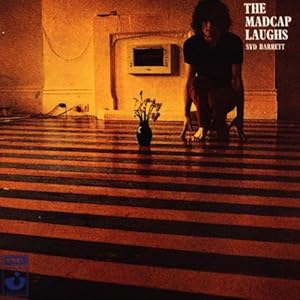Showing posts with label 1970. Show all posts
Showing posts with label 1970. Show all posts
Thursday, September 13, 2012
The Grateful Dead / Workingman's Dead (1970)
The summer of 1970 was the summer of the Grateful Dead. Talk about a busy group -- a mammoth American tour with New Riders of the Purple Sage, nightly concerts lasting until dawn, two studio albums, writing new material, a change of format.... you can tell I'm impressed. Although released several
months before American Beauty, the slab Workingman’s Dead is definitely in the
same vein, stylistically, but the records aren’t interchangeable.
Workingman’s Dead is darker than the successor, in both content and
production. The albums also had different producers. But together, they are the fraternal twins of the Dead’s americana period. As with American Beauty, the two characteristics that
stand out most are the lyrical contributions of Robert Hunter and the
band’s rich vocal harmonies, the latter influenced by a friendship with
Crosby, Stills, and Nash. Both are introduced on the side one opener, “Uncle
John’s Band,” which is an archetypal acoustic singalong affair, marked by a lighter touch from all involved and some uncanny vocal harmonies. Garcia’s work throughout the record is considerably more diverse than it was
later that year. He picks 5-string banjo for the careening “Cumberland
Blues” and his gritty licks on the Stratocaster take center stage for
“Easy Wind” and “New Speedway Boogie.” The country ballad “Dire Wolf” is
propelled by Garcia's masterful work on the pedal steel, and along with Bob
Weir, his acoustic guitar is everywhere. Pigpen does the tough album’s
toughest number, “Easy Wind,” before everything is drawn to a close with
the unforgettable “Casey Jones.” Damn! What a good record. As with other CD re-releases in the Dead's back catalog, it comes with bonus tracks that make entertaining filler, but are what I consider to be nonessential material that should have been placed on a second disc. Am I the only person who wants to preserve original continuity? When I hear that telltale sniff at the beginning of Casey, I want the record to end. It's the whole point, after all. But I don't let that bother me, and I listen anyway.
Labels:
1970,
americana,
bill kreutzmann,
blues,
bob weir,
country,
folk,
grateful dead,
harmony,
jerry garcia,
mickey hart,
pedal steel,
phil lesh,
pigpen,
review,
rock,
stratocaster,
workingman's dead
Tuesday, September 11, 2012
Syd Barrett / The Madcap Laughs (1970)
This spartan solo effort from the
lost founder of Pink Floyd is half-baked in parts, and beautifully complete in
others. It’s uneven, sure, but so was its creator. It stands as a sad and
beautiful testament to the mental and emotional decline of an outstanding creative mind, and the efforts put forth by his friends and former bandmates to salvage his gifts. The record sounds uneven, but it's not distracting and Syd was pretty uneven at the time so part of you is expecting to hear the consequences his mental state had on his music making abilities. “It’s
No Good Trying” is a dark and noisy romp through squalling walls of feedback and
topsy-turvy cadences. The hypnotic rhythm and droning lyrics march through the
speakers like a musical zombie, intent on completing the song but with a reanimated or disembodied feel. “Love You” and “Octopus” are examples of the
Kevin Ayers-style English whimsy Barrett proved so adept at writing for the
first Pink Floyd record and it's nice to get another view of that facet before the window closed completely. Other songs, “Dark Globe,” “Long Gone,” and “She Took
a Long Cold Look” speak to Barrett's emotional side, and offer listeners an intimate glimpse at the human being
living behind the hype. On “Golden Hair,” Barrett interprets musically and with
his voice the words of a James Joyce poem. If the rest of the album doesn’t do
it, this track will hold you transfixed with its pure magic. Yes, magic.
Subscribe to:
Posts (Atom)

